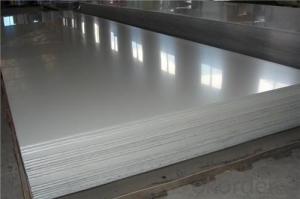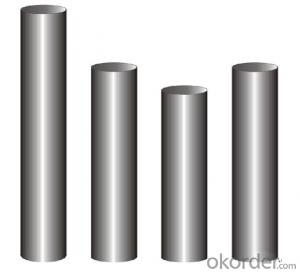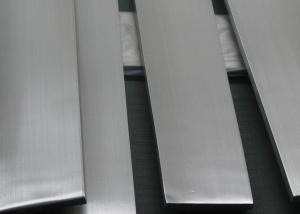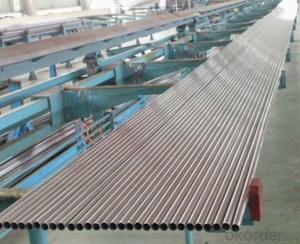American Standard ASTM A240 304 Stainless Steel Plate
- Loading Port:
- Tianjin
- Payment Terms:
- TT OR LC
- Min Order Qty:
- 100 kg
- Supply Capability:
- 1000 kg/month
OKorder Service Pledge
Quality Product, Order Online Tracking, Timely Delivery
OKorder Financial Service
Credit Rating, Credit Services, Credit Purchasing
You Might Also Like
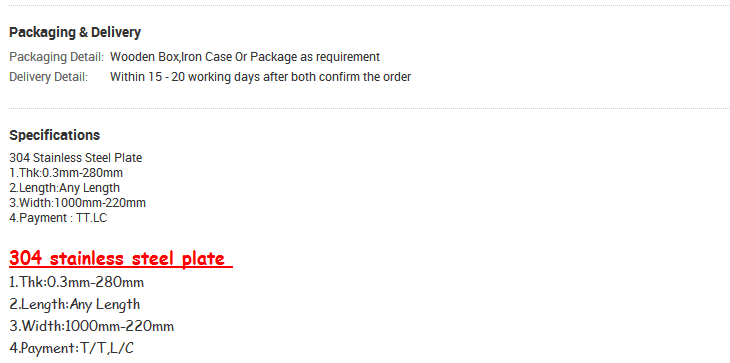
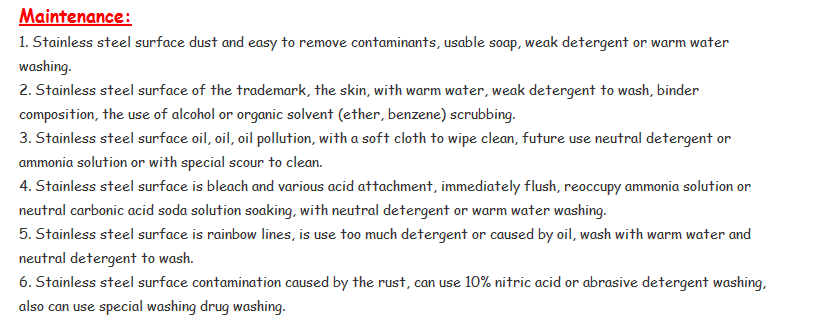
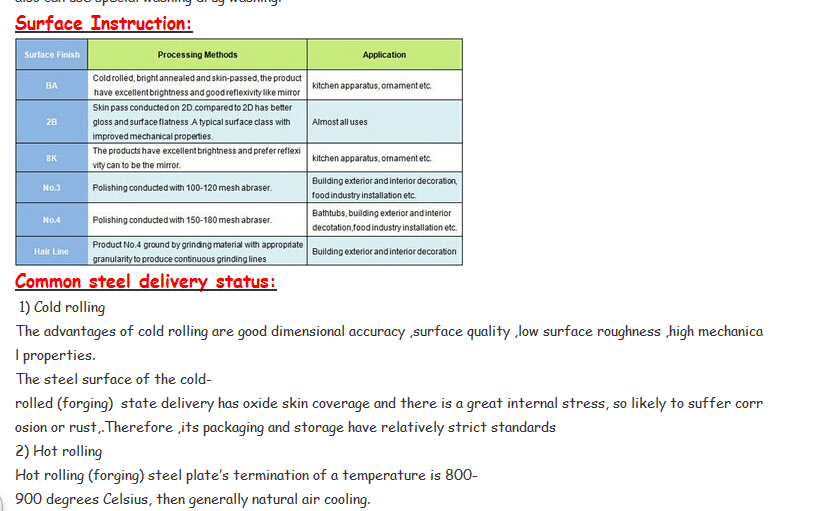
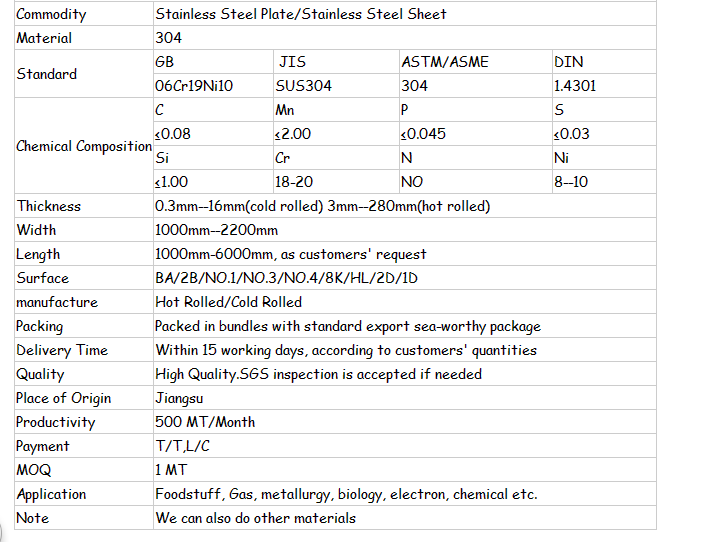
- Q:Can stainless steel pipes be lined?
- Yes, stainless steel pipes can be lined. Lining stainless steel pipes is a common practice in various industries. The lining is done to provide additional protection to the pipe against corrosion, abrasion, and other forms of wear and tear. The lining material can vary depending on the specific requirements of the application, but commonly used lining materials include plastics, rubber, epoxy, and ceramic coatings. Lining stainless steel pipes can enhance their lifespan, improve their resistance to chemicals, and ensure the safe transportation of fluids or gases.
- Q:Can stainless steel pipes be used for solar thermal systems?
- Yes, stainless steel pipes can be used for solar thermal systems. Stainless steel is highly corrosion resistant and can withstand the high temperatures and pressures typically found in solar thermal systems. It is a reliable and durable choice for transporting the heat transfer fluid in these systems.
- Q:Can stainless steel pipes be used for water treatment plants?
- Yes, stainless steel pipes can be used for water treatment plants. Stainless steel is highly resistant to corrosion, making it an ideal choice for transporting water and chemicals used in water treatment processes. It also meets the necessary hygiene and durability requirements, making it a suitable material for this application.
- Q:Stainless steel seamless steel tube, ordinary seamless steel pipe, which is good?
- The general stainless steel tube is wear-resistant, high temperature resistance, corrosion resistance. Plain carbon steel seamless tubes resist pressure better than stainless steel.
- Q:What is the average lifespan of stainless steel pipes?
- The average lifespan of stainless steel pipes can vary depending on various factors such as the quality of the materials used, the environment in which they are installed, and the maintenance practices followed. However, on average, stainless steel pipes can last anywhere from 50 to 100 years or more with proper care and maintenance.
- Q:How do you clean stainless steel pipes?
- To effectively clean stainless steel pipes, various methods can be employed depending on the extent of dirt or grime present. To begin with, warm water and a mild detergent can be utilized. The detergent should be mixed with water and a soft cloth or sponge can be used to gently wipe the surface of the pipes. It is important to ensure that the wiping motion follows the direction of the grain in order to prevent any scratching of the steel. Following this, the pipes should be thoroughly rinsed with clean water and dried with a clean, lint-free cloth. In cases where the pipes exhibit tougher stains or buildup, a vinegar solution can be employed. Equal parts of vinegar and water should be mixed and the resultant solution can be applied to the pipes. Allowing it to sit for a few minutes will enable the solution to dissolve the stains, after which a soft brush or cloth can be used to gently scrub the pipes. Subsequently, the pipes should be well-rinsed with clean water and thoroughly dried. For more stubborn stains or discoloration, the utilization of a specialized stainless steel cleaner or polish is recommended. The product's instructions should be followed, typically involving its application to the pipes and subsequent rubbing with a soft cloth, once again following the direction of the grain. The pipes must then be rinsed extensively with clean water and completely dried. It should be noted that abrasive cleaners or scrubbing pads must be avoided as they possess the potential to scratch the stainless steel surface. Furthermore, it is advisable to always test any cleaning solution or product on a small, inconspicuous area of the pipes before applying it to the entire surface. This ensures that no damage or discoloration occurs.
- Q:What is the maximum diameter of stainless steel pipes available?
- The maximum diameter of stainless steel pipes can differ based on the manufacturer and supplier. Nevertheless, stainless steel pipes usually span from smaller sizes, like ½ inch or 1 inch, to larger sizes, such as 36 inches or beyond. It is crucial to acknowledge that obtaining bigger diameters might be restricted and necessitate special orders or customization. It is, therefore, recommended to consult specific manufacturers or suppliers to ascertain the maximum diameter they provide for stainless steel pipes.
- Q:Are stainless steel pipes suitable for food processing plants?
- Yes, stainless steel pipes are highly suitable for food processing plants. Stainless steel is a corrosion-resistant material that does not react with food or beverages, ensuring that there is no contamination. It is also easy to clean and maintain, making it ideal for maintaining strict hygiene standards in food processing facilities. Additionally, stainless steel pipes can withstand high temperatures and pressures, making them durable and long-lasting in food processing plant environments.
- Q:Are stainless steel pipes suitable for nuclear power plants?
- Yes, stainless steel pipes are suitable for nuclear power plants. Stainless steel is widely used in nuclear power plants due to its excellent corrosion resistance properties, high strength, and ability to withstand high temperatures and pressures. These pipes are used for various purposes in a nuclear power plant, including carrying coolant, steam, and other fluids. Stainless steel pipes are highly resistant to corrosion, which is crucial in preventing leakages and maintaining the integrity of the system. Additionally, stainless steel is also resistant to radiation damage, making it a suitable material for nuclear power plant applications.
- Q:Are stainless steel pipes suitable for brewing systems?
- Yes, stainless steel pipes are highly suitable for brewing systems. Stainless steel is the preferred material for brewing equipment due to its excellent corrosion resistance, hygienic properties, and durability. Stainless steel pipes do not react with the acidic components present in brewing, ensuring that there are no unwanted flavors or contaminants introduced into the beer. Additionally, stainless steel pipes are easy to clean and maintain, making them ideal for the brewing process. Overall, stainless steel pipes provide a reliable and long-lasting solution for brewing systems, ensuring the production of high-quality and uncontaminated beer.
1. Manufacturer Overview |
|
|---|---|
| Location | |
| Year Established | |
| Annual Output Value | |
| Main Markets | |
| Company Certifications | |
2. Manufacturer Certificates |
|
|---|---|
| a) Certification Name | |
| Range | |
| Reference | |
| Validity Period | |
3. Manufacturer Capability |
|
|---|---|
| a)Trade Capacity | |
| Nearest Port | |
| Export Percentage | |
| No.of Employees in Trade Department | |
| Language Spoken: | |
| b)Factory Information | |
| Factory Size: | |
| No. of Production Lines | |
| Contract Manufacturing | |
| Product Price Range | |
Send your message to us
American Standard ASTM A240 304 Stainless Steel Plate
- Loading Port:
- Tianjin
- Payment Terms:
- TT OR LC
- Min Order Qty:
- 100 kg
- Supply Capability:
- 1000 kg/month
OKorder Service Pledge
Quality Product, Order Online Tracking, Timely Delivery
OKorder Financial Service
Credit Rating, Credit Services, Credit Purchasing
Similar products
New products
Hot products
Hot Searches
Related keywords
